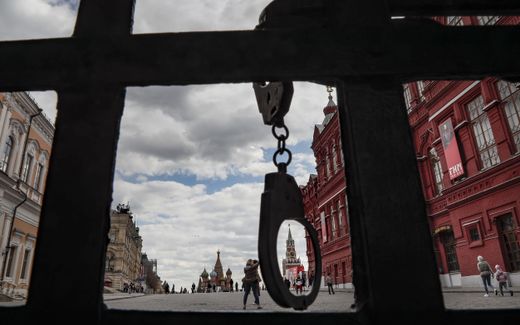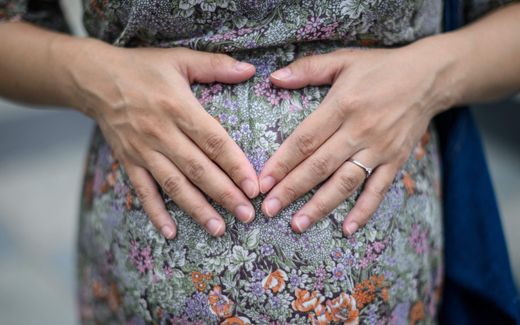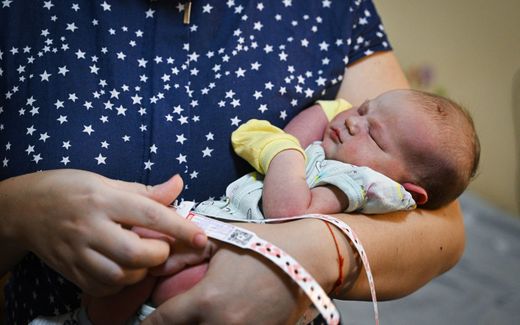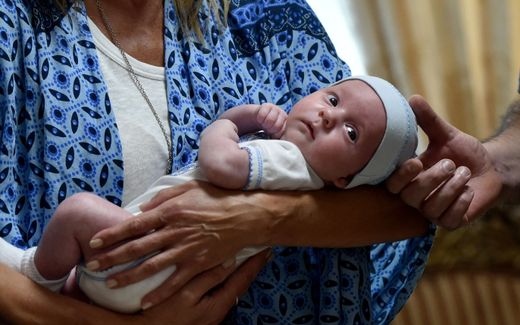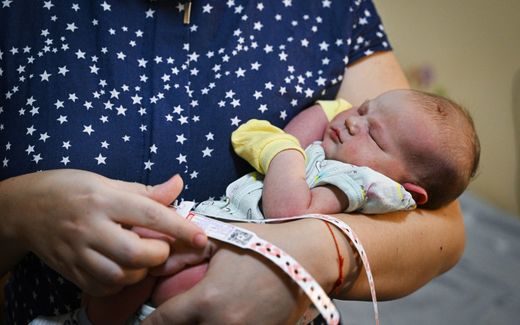The Russian surrogacy industry is collapsing
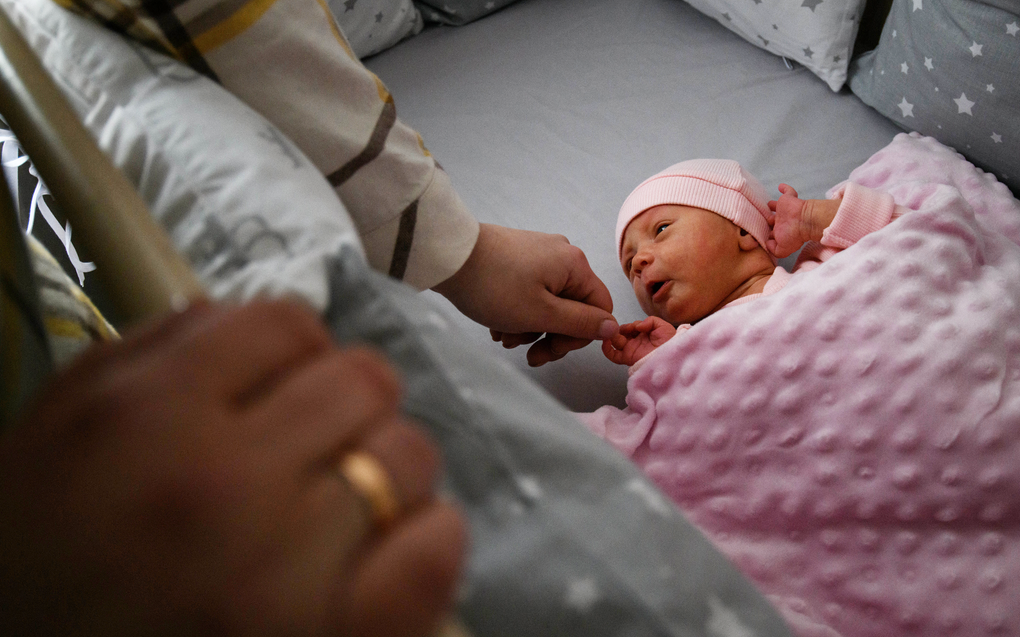
The ban on donor eggs is making people pursue their desire for children across borders. Photo EPA, Sergey Kozlov
Eastern Europe
The Russian surrogacy industry is “collapsing”. People working in the market fear an exodus to other countries in an attempt to get a child through cross-border surrogacy.
New legislation in Russia and the war in Ukraine dealt a heavy blow to the Russian surrogacy industry. At some clinics, the number of surrogacy treatments fell by as much as 70 per cent. Those in the industry are uneasy and expect further declines during 2023, calling it a "collapse".
A large factor in the drop is the new legislation that President Putin signed at the end of last year. On December 19th, the president, who is wanted for alleged war crimes in Ukraine, signed a law banning foreigners and single Russian males from using surrogacy. In addition, IVF treatments could only be done with someone’s own eggs, thus banning the use of donor eggs to create an embryo.
The State Duma approved the bill on December 8th. State Duma Speaker Vyacheslav Volodin wrote on his Telegram channel that the law would allow “preventing child trafficking, protecting babies from (…) same-sex couples or become victims of crimes, including sales for organs.” According to him, in the last few years, over 45,000 children have been transferred out of the country by foreigners. Meanwhile, the Russian Association for Human Reproduction disputes this number and says that in the last fifteen years, a mere 4,100 children were born from surrogacy.
The ongoing war in Ukraine is also a factor in the Russian surrogacy industry crash, experts expect. The Russian news outlet Medvestnik reports that while some of the intended parents sought to fulfil their desire for a child by entering a surrogacy procedure in Georgia or Belarus, others temporarily paused their pursuit of a child during this “period of instability.”
The ongoing war also caused setbacks in the industry in other ways. Last year, there were interruptions in the supply of medical devices for procedures due to sanctions. Price hikes for a child borne by another also caused less interest.
Destruction
According to Vladislav Korsak, president of the Russian Association for Human Reproduction (RAHR), the legislative ban on using donor eggs was the key reason for the drop. In an interview with Medvestnik, he says that the ban contributes to the destruction of the family. “Infertility in modern medicine is recognized as a disease. (...) Assisted reproductive technologies (ART), including surrogate motherhood, can cure precisely infertility.”
Korsak also responded to a discussion where a representative of the Russian Orthodox Church said that it was impossible to cure infertility with the help of ART. “This is wrong. It is impossible to cure the cause of infertility with the help of ART, but it is possible to overcome it. Thanks to donor eggs or sperm and the help of a surrogate mother, important results for the state will be achieved - a new citizen will appear in the country, and the family will become full-fledged.”

The RAHR president is putting his hopes on the Russian Constitutional Court, which accepted an appeal in March. In it, an Australian couple tries to gain custody over their children born through surrogacy in 2020. Due to the pandemic, the couple could not retrieve the children, causing them to be put in an orphanage. Several court decisions prevented the couple from retrieving their children, after which the total ban on surrogacy from abroad in 2022 complicated their situation. Now the Constitutional Court must come up with a definitive answer. “There will be a decision as to who owns these children”, Korsak says. “Depending on the court's decision, other patients will receive medical attention, and the embryos will be used. Or patients will have no choice but to go to those countries where surrogate motherhood with donor germ cells is allowed.”
Desire
Although Russia banned commercial surrogacy for foreigners, it is still possible to carry a child for profit within Russia. Infertile heterosexual couples and single women still have access to the practice. However, the ban on donor eggs is making people pursue their desire for children across borders. The Russian surrogacy industry sees Russians increasingly travel to cheap commercial surrogacy countries such as Kazakhstan, Belarus and Georgia for treatment. The latter one is also increasingly popular for Western couples since the war made the popular surrogacy destination Ukraine less obvious.
Related Articles


